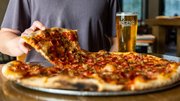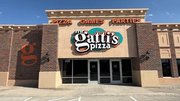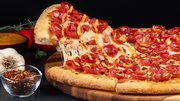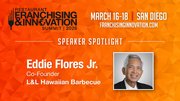Food & Beverage
Why menu innovation is at the heart of restaurant industry
A panel talk at Networld Media Group’s Restaurant Franchising and Innovation Summit focused on menu development with experts sharing insight on cost margins, recipe costs and managing employee expectations.
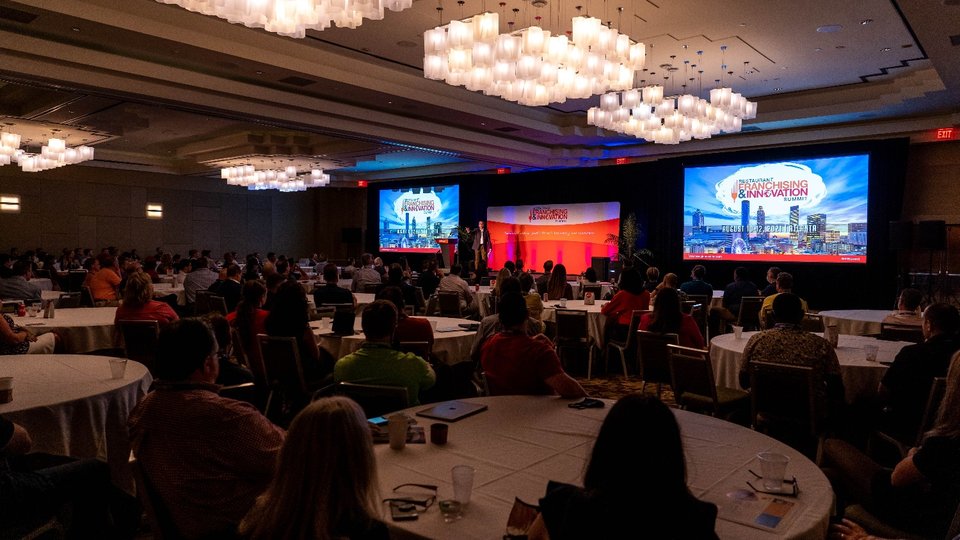
September 16, 2021 by Mandy Wolf Detwiler — Editor, Networld Media Group
Menu innovation is at the forefront of the restaurant industry, with brands rolling out more menu items than ever post pandemic.
How to implement new menu ideas was the focus of a panel session at the recent Restaurant Franchising and Innovation Summit hosted by Networld Media Group and held in Atlanta, Georgia.
The event is one of several restaurant industry summits run by Networld Media Group. The media company's Fast Casual Executive Summit will take place Oct. 3-5 in Charlotte, North Carolina, and a virtual event, #QSRNext, which will take place Nov. 9. Now in its 16th year, the FCES summit brings together the best brands in the world for three days of interactive sessions that delve deep into topics that are on the minds of restaurant leaders.
The RFIS panel included Mindy Armstrong, director of menu strategy and product innovation at Buffalo Wild Wings, Alice Crowder, chief marketing officer at Krystal, Jeff Fenster, founder and CEO at Everbowl and Chef Dave Woolley, director of deliciousness at Buffalo Wild Wings. It was moderated by Brett Berger, director of sales at SynergySuite.
Using guest and franchisee feedback
Armstrong discussed the best way to implement changes into the menu. In the end, restaurants pretty much have the same processes, but at the end of the day, menus are consumer driven, he said.
"What's we're always trying to do is creating for our guests with our guests in mind," Armstrong said. "But on top of that we're really trying to spend a lot of time thinking about our team members and how do we help them and enable them to execute with excellence so that we can delight our guests."
The goal is to lead with consumer insight into processes creating products that deliver against that consumer need. Research into needs, such a daypart, price points or value, can offer valuable insight.
"We're trying to figure out how it would work in our kitchens," Armstrong said. "Would it require equipment and making sure we're testing it in our kitchens with our team members working with our cross-functional teams to bring that idea to life really rallying our cross-functional teams through the entire process, hand-in-hand all the way through. If we're successful in getting everybody internally excited about it, it's much easier to bring it to life in our bars and on our menu."
That feedback comes from technology and using guest communities targeted directly to that new idea, and finally Buffalo Wild Wings does some product testing in the field to gauge customer reaction. It's important to work with franchisees during the process so when new menu items are launched, there's already internal support.
Buffalo Wild Wings has a franchisee committee for food and beverage that meets regularly and "from there, we bounce ideas off of them even before they go any further through the commercialization and interacting with some of the guests," Woolley said, adding franchisees recently came to leadership with an idea that's under consideration companywide.
While the relationship between franchisee and corporate can be challenging, Buffalo Wild Wings feels they do a good job incorporating franchisee ideas into operations.
"The closer we can get to our operators, the closer we can get to our franchisees and the closer we can get to the business, the better we're going to be," Armstrong said.
Krystal also has a franchise subcommittee that meets twice a month, "but we invite them in to our qualitative and quantitative processes as well so we do a lot of simulated market testing to see through technology how an item is going to do with our target and we do a lot of CLTs (central location testing) that's quantitatively significant — case testing, if you will," said Crowder.
And everything is done by committee. There's no one golden palate that makes decisions for a brand. Everbowl was a corporate-owned company before franchising in 2020 and only recently started incorporating franchisees in their decision-making processes. Leaning on franchisees is especially important in new markets, Fenster said. As the founder, he's stepping out of his comfort zone and relying on franchisees to know local tastes and sourcing.
"We do have team members who are contributing internally in all of these areas as well as our franchise partners," he added. "As CEO my main focus is collaboration and understanding that the menu has to be dynamic.
With so many processes in place before a new item is released, finding out where the company can "be nimble" and balance creativity with processes.
"If I'm looking at making a new milkshake, do I need to take that through an eight-stage validation process to find out that people like ice cream and sweet things?" Crowder asked. "No. But if it something I'm asking my franchisees to invest in a new piece of equipment or a new protein or something that really has the potential to impact the menu, then that's where I'm really going to put my process and my time. I think it's unique with everything you work on."
Crowder said it's important to understand the guest and not bombard them with new LTOs. "We get way more tired of our menu than our guest does," she said.
Changing the menu
Pulling items off the menu can be a sensitive move as well. Crowder said Krystal is undergoing a formal menu optimization and while some brands cut the worst-selling items, she believes its better to measure the redundancy of items.
"When we take something off, we want to make sure that the majority of people are able to find something else on the menu to substitute that purchase with," she said," and then to make sure what they're substituting has the same or better profitability than what we're taking away."
Fenster started Everbowl as a consumer, so he wanted unlimited toppings for his craft acai bowls. He has to understand food costs and consumer wants in order to make money, as one customer can come in and cost him a fortune with a lot of toppings while another can cost him very little. Trading out toppings is a given.
"Consumers want options, but they're not going to use them," Fenster added. By having unlimited options, people are less likely to go to a competitor, but they're still going to choose the most popular options.
It's easy to come myopic and create a product for buzz with little thought to profitability, but end the end, the bottom line is most important to the success of a brand.
Buffalo Wild Wings has "wings" in its name, but the company is actually a sauce company with 26 sauces on its menu, Woolley said. That gives customers a lot of options for customization, and that separates the company from its competitors.
"New ideas for sauces are coming out all the time so how do we take something off of there and replace it with a new sauce?" he asked. They can take something off and replace it with an LTO, but can Buffalo Wild Wings take a long-standing menu item off? It's not easy to do, as some customers will just be upset anyway, but innovation and staying at the forefront of the industry is key to success.
"I think you just have to be ready to have those conversations," Armstrong said.
Motivating employees
The panel also discussed how to get the executive team to buy into change as well. It's a rough few months in the beginning, Crowder said, adding she's changed menus at several different organizations and has seen firsthand how difficult it is to get other executive team members and franchisees on board.
"If people haven't been involved in it, they don't understand that there's real science behind the marketing and behind product development," Crowder said. "I always say give me six months, listen to the numbers, and let's go."
Of the items that are tested, Woolley said you get one to three wins for every 100 ideas. Testing with franchisees and giving them a say helps motivate them to sell more and buy into change.
"Food is very personal," Woolley added. "We all have a personal opinion about what we like and what we don't like. It's very hard to teach someone to take their personal opinion out of X dish or Y dish and let the guest tell you what they want."
About Mandy Wolf Detwiler
Mandy Wolf Detwiler is the managing editor at Networld Media Group and the site editor for PizzaMarketplace.com and QSRweb.com. She has more than 20 years’ experience covering food, people and places.
An award-winning print journalist, Mandy brings more than 20 years’ experience to Networld Media Group. She has spent nearly two decades covering the pizza industry, from independent pizzerias to multi-unit chains and every size business in between. Mandy has been featured on the Food Network and has won numerous awards for her coverage of the restaurant industry. She has an insatiable appetite for learning, and can tell you where to find the best slices in the country after spending 15 years traveling and eating pizza for a living.
 ChatGPT
ChatGPT Grok
Grok Perplexity
Perplexity Claude
Claude